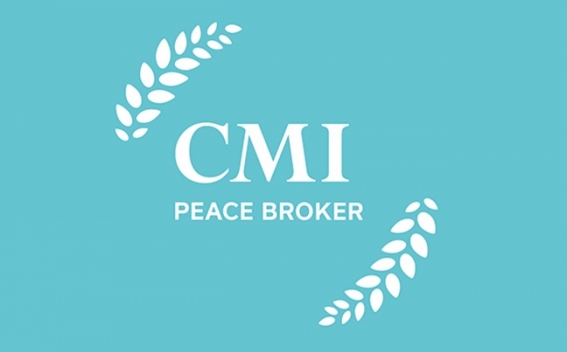Peace Process Architecture: Lessons Learned from the Western Balkans Cases

From March 30 to April 2, workshop on "Negotiations and Peace Process Architecture: Lessons Learned from the Western Balkan Cases” took place in Aghveran. It was held in the framework of the project “Building Peace Process Competences of Mandated Executives in Armenia” and was organized in cooperation with “European Integration” NGO and Crisis Management Initiative (CMI).
The objective of the project “Building Peace Process Competences of Mandated Executives in Armenia” is to present to the representatives of the Armenian state institutions, international experiences on conflict settlement, lessons learned from them, the stages of comprehensive peace process design, the strategies and tools necessary for preparing societies to peace.
The seminar was attended by representatives of the Office to the President, National Assembly, Ministry of Foreign Affairs and the Defense Ministry.
During the 4 days of the workshop invited international experts on Western Balkan issues, such as Ambassador Wolfgang Petritsch, presented the participants the peculiarities of the processes that took place and continue to take place in the Western Balkans, the negotiation processes of the current issues, the actions of the mediators and the sides. Amb. Petritsch who is currently acting as President of Marshallplan Foundation and as President of the Herbert C. Kelman Institute for interactive conflict transformation in Vienna, has been the EU's Special Envoy for Kosovo (1998-1999), EU chief negotiator at the Kosovo peace talks in Rambouillet and Paris (1999), and then High Representative for Bosnia and Herzegovina (1999-2002).
The experts also carried out mapping of the actors of the conflict in the Western Balkans, the interests of those actors. Other activities were also carried out to improve the negotiation skills of the participants.
According to the participants, it was important to listen to both sides of the conflict during the training, to know not only the details of the Balkan events, but also background elements, public moods, and creative approaches that both sides and/or mediators used to overcome the deadlock in the negotiation process.
The seminar participants also noted that besides getting deeper and more detailed information on the problems of the Western Balkan cases, the workshop was a good opportunity to communicate with the colleagues of different departments and to reach certain agreements for future cooperation.
In the framework of the same project, earlier workshops were held on "The Complexity of Peace Processes: Lessons from Northern Ireland and Scotland Cases" and "Peace Process Architecture: Lessons Learned from Transdniestrian Conflict Resolution and Cyprus Case", as well as on the peace processes, negotiations techniques.
During the previous events the invited speakers were the former Cabinet Minister in the UK government, a person, who was actively engaged in the campaign against the Scottish independence referendum, Rt. Hon. Jim Murphy; Northern Irish politician and a Member of Parliament belonging to the Democratic Unionist Party, Rt. Hon. Jeffrey Donaldson; a negotiator from the Republic of Moldova engaged in the Transdniestrian conflict resolution process, Ambassador Vasile Sova and Prof. Ahmet SÖZEN, a participant in the negotiations on Cyprus conflict resolution.
It should be noted that the project “Building Peace Process Competences of Mandated Executives in Armenia” is being implemented in the framework of the initiative “The European Partnership for the peaceful settlement of the conflict over Nagorno-Karabakh” (EPNK).
-
 17:08
17:08The regular session of the Anti-corruption Policy Council takes place in Jermuk
-
 15:05
15:05The Prime Minister sends congratulatory messages to the supreme leader of Iran and the President of Iran
-
 11:11
11:11Armenia sends earthquake aid to Turkey
-
 10:43
10:43Commemoration of the Pontiff St. Sahak Partev
-
 09:16
09:16Some roads are closed and difficult to pass in Armenia
-
 19:55
19:55Phone conversation of the Foreign Minister of Armenia with the U.S. Assistant Secretary of State for European and Eurasian Affairs
-
 18:30
18:30Prime Minister Pashinyan and President Khachaturyan meet
-
 18:20
18:20Ararat Mirzoyan with Co-Chairman of the OSCE Minsk Group of France Brice Roquefeuil
-
 17:01
17:01Humans could land on Mars within 10 years, Musk predicts
-
 16:45
16:45France, US urge 'immediate' end to Nagorno Karabakh blockade
-
 16:01
16:01Blockaded Nagorno Karabakh launches fundraiser to support quake-hit Syria
-
 15:59
15:59Earthquake death toll in Turkey rises to 18,342
-
 15:43
15:43Ararat Mirzoyan Held a Telephone Conversation with Sergey Lavrov
-
 15:06
15:06French president rules out fighter jet supplies to Ukraine in near future
-
 14:47
14:475 Day Weather Forecast in Armenia
-
 14:44
14:44President Vahagn Khachaturyan wrote a note in the book of condolences opened in the Embassy of Syria in Armenia
-
 14:20
14:20Azerbaijan’s provocations impede establishment of peace and stability – Armenian FM tells Russian Co-Chair of OSCE MG
-
 12:57
12:57France representation to OSCE: Paris calls on Azerbaijan to restore freedom of movement through Lachin corridor
-
 11:40
11:40Command of Kosovo forces highly appreciated preparation of Armenian peacekeepers
-
 10:16
10:16The United States withdrew from sanctions against Syria for six months the provision of assistance after the earthquake
day
week
month
Humidity: 33%
Wind: 5.14 km/h

